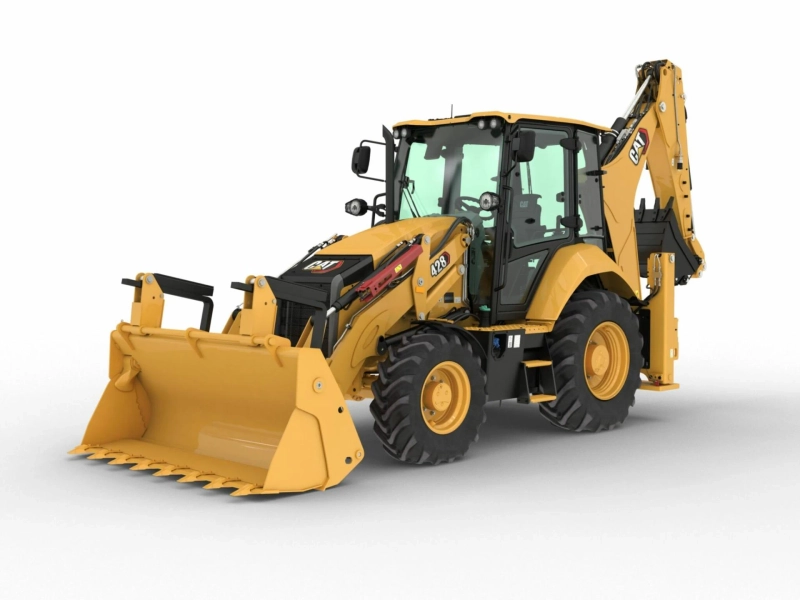The purchase of used machinery in the UAE can be a cost-effective and practical solution for many businesses. However, ensuring the quality of this machinery is paramount to avoid unforeseen costs and operational downtime. Below, we outline comprehensive strategies to help you guarantee that the used machinery you acquire meets your high standards.
Thorough Inspection and Assessment
Before purchasing any used machinery, it is essential to conduct a thorough inspection. This involves both a visual check and a performance test. Look for any visible signs of wear and tear, rust, or damage. Pay close attention to moving parts, as these are more likely to experience significant wear. Additionally, assess the machine's performance by running it to ensure all functions are operational and efficient.
Verification of Maintenance Records: Request detailed maintenance records from the seller. These records should include information on regular servicing, part replacements, and any repairs. A well-documented maintenance history can indicate that the machinery has been properly cared for and is likely to be more reliable.
Consult with a Professional Inspector: Hiring a professional inspector with expertise in the specific type of machinery you are considering can provide an unbiased and comprehensive evaluation. These professionals can identify potential issues that might not be obvious to the untrained eye and can give you a better understanding of the machine's overall condition.
Request Operational History: Understanding the operational history of the machinery can provide insight into its previous use and potential future performance. Machines that have been used in less demanding environments may have a longer remaining lifespan compared to those that have been subjected to heavy, continuous use.
Check for Upgrades and Modifications: Determine if the machinery has undergone any upgrades or modifications. These changes can either improve or compromise the equipment’s performance and safety. Ensure that any modifications were performed by qualified technicians and meet industry standards.
Evaluate the Age of the Machinery: While older machinery can be a bargain, it may come with hidden costs due to outdated technology or the difficulty of finding replacement parts. Consider the age of the machinery in relation to its expected lifespan and the availability of parts and service.
Test Under Actual Working Conditions: Whenever possible, test the machinery under actual working conditions. This can reveal issues that might not be apparent during a brief inspection. Simulate the machinery's typical workload to see how it performs in real-world scenarios.
Check Compatibility with Existing Systems: Verify that the used machinery is compatible with your existing systems. This includes checking the power requirements, interface compatibility, and any other factors that might affect the integration of the machinery into your current operations.
Consider the Cost of Potential Repairs: Before finalizing the purchase, factor in the cost of potential repairs. Obtain quotes for any necessary repairs or parts replacements and consider these costs in your overall budget. This will help you avoid unexpected expenses that could negate the initial savings of buying used machinery.
Ensure Compliance with Safety Standards: Used machinery must comply with current safety standards and regulations. Verify that the equipment meets all necessary certifications and has been maintained to ensure a safe working environment. Non-compliant machinery can pose significant risks and legal liabilities.
Consider After-Sale Support: Assess the availability of after-sale support from the seller or manufacturer. Reliable after-sale service can be crucial for maintenance, repairs, and technical support, ensuring that your machinery remains operational and efficient for as long as possible.
Document All Agreements and Transactions: Ensure that all agreements, including the condition of the machinery, warranties, return policies, and negotiated prices, are documented in writing. This documentation protects both parties and provides a clear reference in case of any disputes or issues that arise post-purchase.
Perform Regular Maintenance and Monitoring: After acquiring the used machinery, implement a rigorous schedule of regular maintenance and monitoring. Proactive upkeep can significantly extend the life of your machinery and prevent costly breakdowns.
Conclusion
Ensuring the quality of used machinery in the UAE requires meticulous attention to detail and a comprehensive approach. By following the steps outlined above, businesses can make informed decisions that secure reliable and efficient machinery, thus supporting their operational needs and long-term success.
For those seeking a reputable source, Al-Bahar stands out as a leading provider of used machinery in the UAE. Renowned for their stringent quality checks, extensive maintenance records, and excellent after-sale support, Al-Bahar offers a trustworthy solution for businesses looking to invest in high-quality used equipment. With Al-Bahar, you can be confident in the machinery’s performance and longevity, ensuring that your investment is both sound and beneficial.



